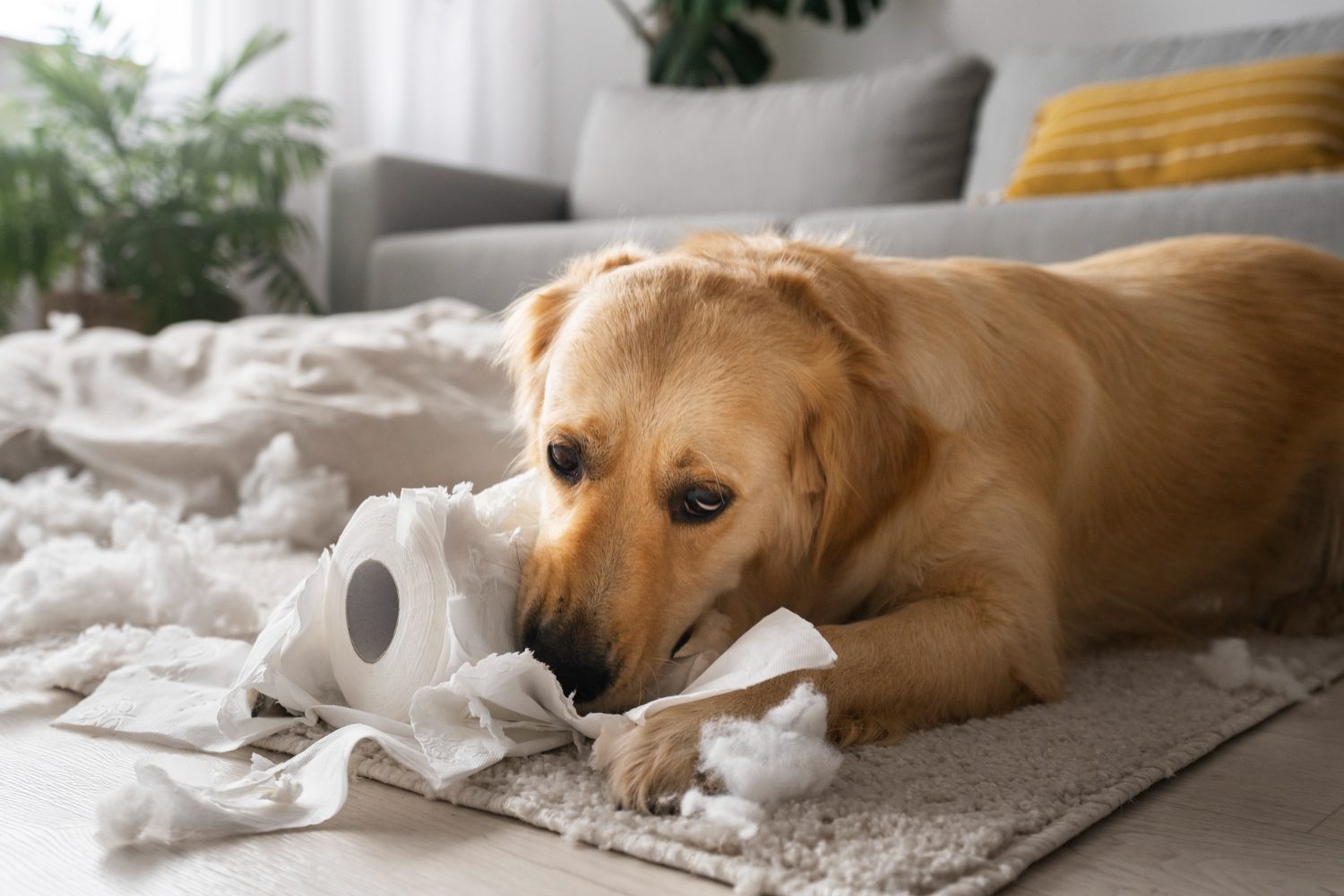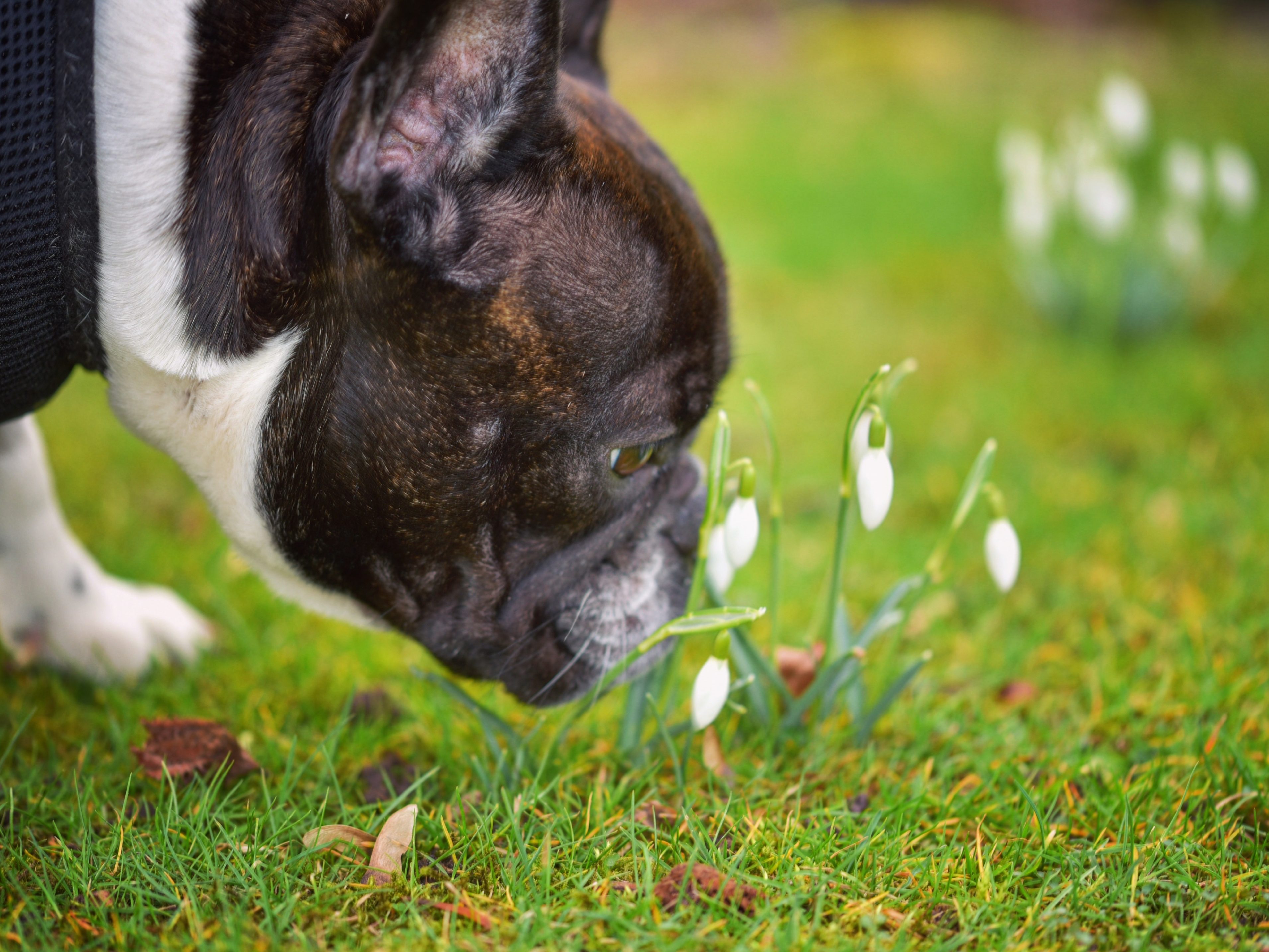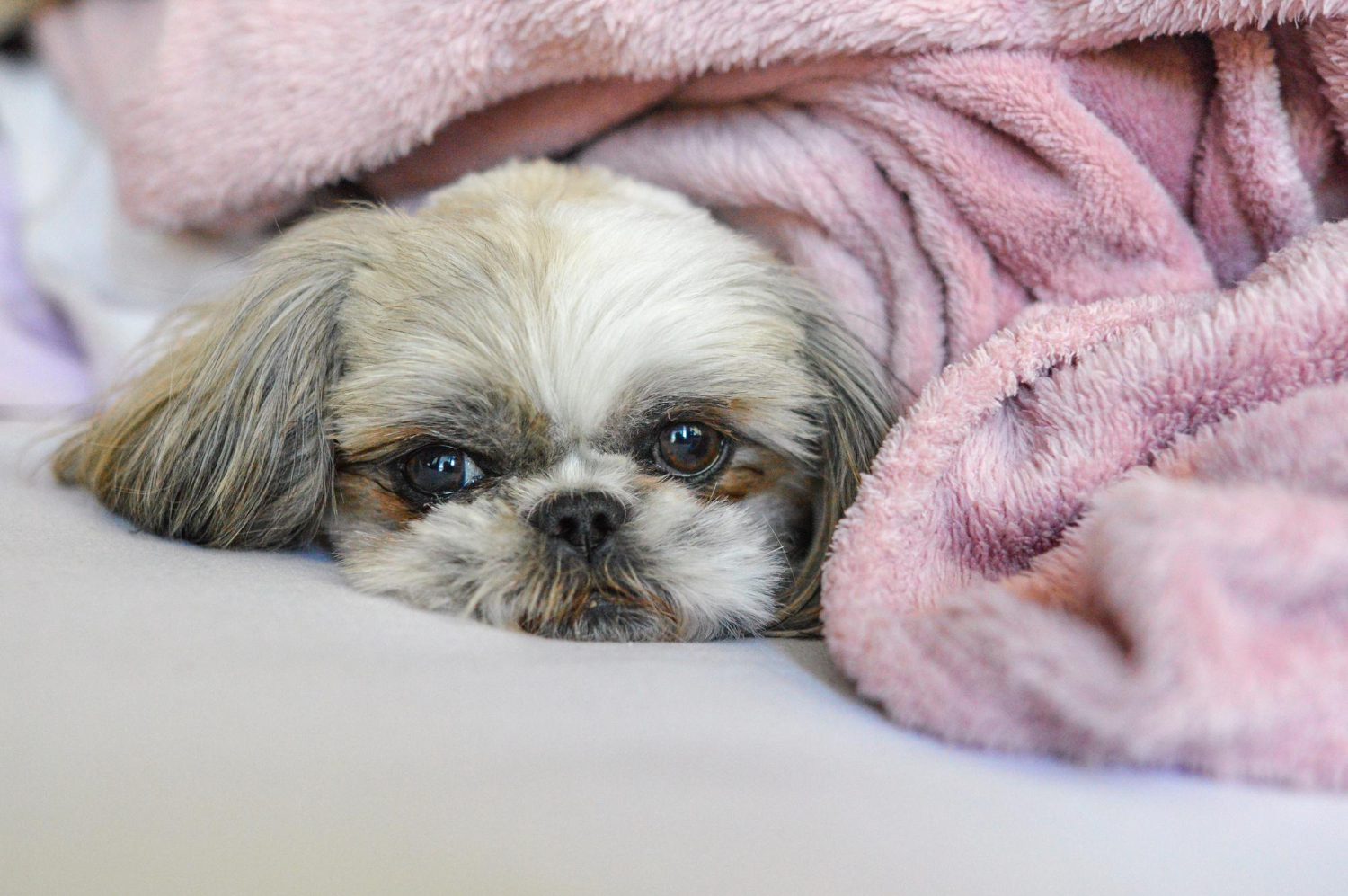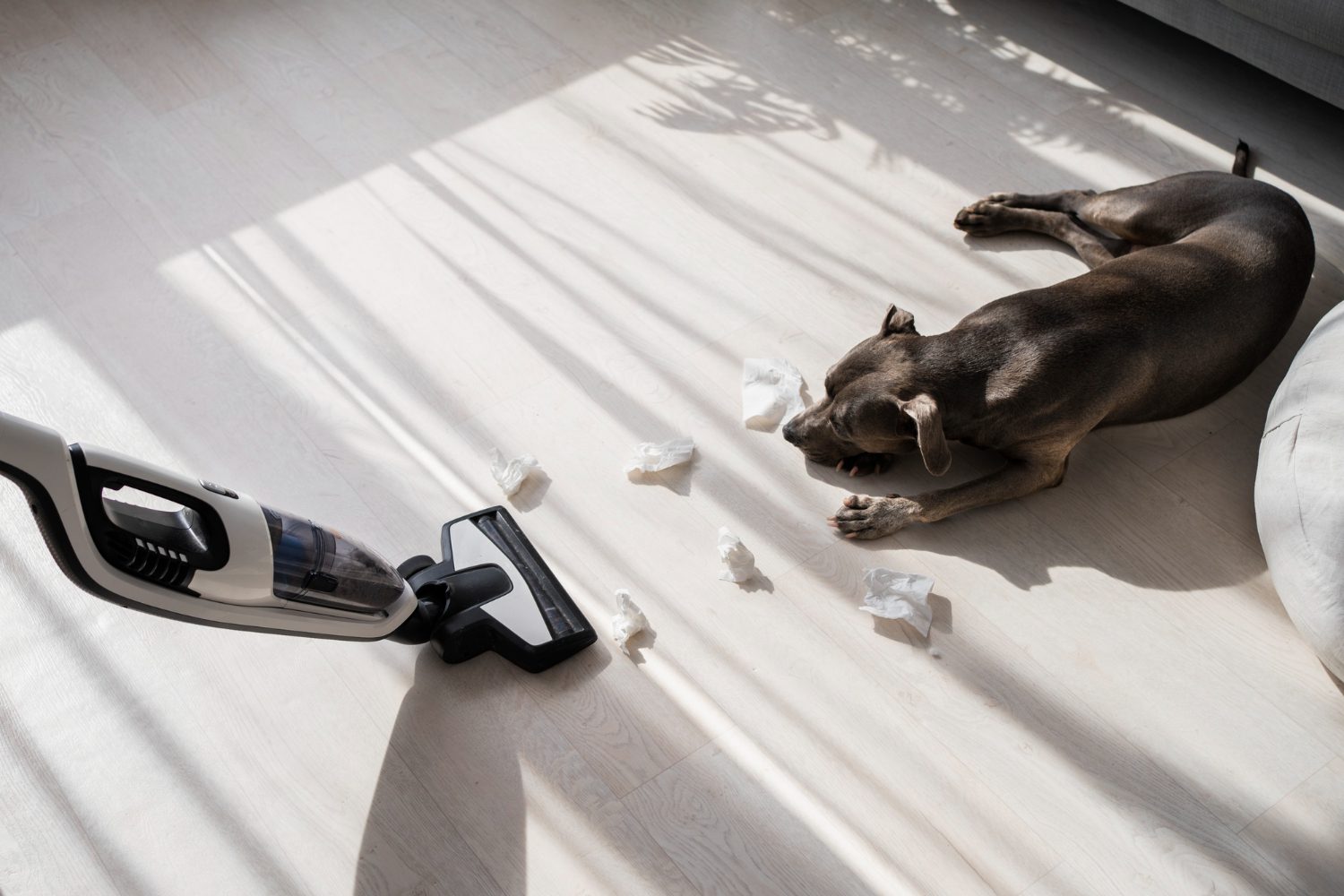Why is My Dog Sneezing a Lot?

By Evelyn Harcourt
juillet 09, 2025 - 1 min read
Sneezing is very common, and every dog will sneeze from time to time. Indeed, many new puppy owners will wonder if their pup's sneezing is excessive, as they do so much.
There are many potential causes of canine sneezing, some more concerning than others. We examine how to help from home, when to see your vet, and what diagnostic tests and therapies may be considered.

Understanding Sneezing in Dogs
Sneezing is a mechanism the body uses to clear out irritants from the nasal cavity. Pollen, germs, and fragrances can all trigger sneezes.
How the Canine Nasal System Works
The lining of the canine nose contains many nerve endings, which can detect an irritant and trigger a sneeze reflex.
Normal Occasional Sneezes vs. Problem Sneezing
Every dog sneezes from time to time. Inquisitive puppies who are sniffing everywhere will sneeze several times a day, and even adults sneeze now and then.
When sneezing is persistent or accompanied by other symptoms, we must pay more attention.
Reverse Sneezing Explained
Owners often worry when their dog reverse sneezes, thinking they are choking or having a fit. Reverse sneezing is when a dog inhales and then makes a noisy snorting noise, several times over.
This is harmless and usually due to over-excitement or an irritant within the nose. Short-nosed breeds experience it more commonly.
Common Causes of Frequent Sneezing
Many things can trigger a sneeze reflex, as your dog’s body works to keep potential threats out of its deeper airways.
Environmental Allergens
Things like pollen, dust, and mould all float around in abundance. In certain environments or at specific times of the year, they will be in much higher numbers, and some dogs will react more to them.
Foreign Bodies
Of course, if your dog inhales anything up its nose and it gets stuck, it will cause a lot of sneezing. Your dog may also rub its nose on the floor or with its paw. Some common culprits include grass awns (foxtails) and blades of grass.
Infections
Viral, bacterial and fungal infections can cause a host of upper respiratory symptoms, such as coughing, sneezing and a runny nose.
Dogs with infections will have other symptoms, alongside their sneezing. There is typically a yellow or green nasal discharge (snot) when bacteria are present.
Dental Disease and Oral–Nasal Fistula
The mouth and nose are closely linked, and issues including oral-nasal fistula or tooth root abscesses can cause signs including a snotty discharge and ongoing sneezing.
These dogs frequently also have bad breath and trouble eating.
Breed-Related Factors
Dogs with narrower airways (particularly brachycephalics such as Pugs and Shih Tzus) are more likely to sneeze and reverse sneeze.

Accompanying Signs and Symptoms to Watch For
Once you’ve noticed your dog is sneezing, keep a close eye for any other signs.
Nasal Discharge
If discharge from the nose occurs, check to see if it is clear or coloured and if it contains blood. It is also helpful to note if it is from one nostril (unilateral) or both (bilateral).
Coughing, Gagging or Reverse Sneezing
Often, a dog sneezing will have additional signs such as a cough, gag or reverse sneeze. It is sometimes hard for an owner to differentiate these, so videoing the events as much as possible can significantly help.
Facial Swelling or Pain
Monitor for any swelling of the face, and note if it came on suddenly and if it is on one or both sides. If your dog flinches when their face is touched or dislikes being examined, they may be in some pain.
Systemic Signs
Of course, some dogs will have more generalised signs too. If they have a viral infection, for example, it would not be unusual for them to act lethargic, run a fever, and eat less.
At-Home Assessment and First Steps
Once you’ve noticed your dog sneezing more, there are some steps to take from home.
Nose and Mouth Check
If your dog tolerates it, take a look inside both nostrils and its mouth. You should check for swellings, masses, bad smells, or discharge.
Tracking Frequency and Triggers
It can be helpful to note down when the sneezing is happening and how often. Any unusual noises (which could be a gag or reverse sneeze, for example) can be videoed.
Allergen-Reduction Strategies at Home
Where possible, try to minimise the irritants your dog is exposed to. This may include using air purifiers, regular damp dusting, frequent vacuum cleaning and steering clear of perfumes, scented candles, air fresheners, and harsh chemicals.

When to Call Your Veterinarian
If your dog’s sneezing is regular or accompanied by other signs, it is worth assessing them by a vet near you.
Time Frames for Persistent Sneezing
Sneezing that is very regular and lasts more than a few days is worth checking out. This usually means booking a routine appointment.
Red-Flag Symptoms Requiring Same-Day Care
Ask for an emergency appointment if your dog has trouble breathing, is experiencing a nosebleed, or is very unwell.
Preparing for the Vet Visit
As mentioned, keeping records and taking videos can be beneficial. Be sure to take these along to your vet appointment, as it is quite typical for a sneezing and coughing dog to be completely silent during their consultation.
Veterinary Diagnosis and Treatment
Your vet will take a medical history and perform a nose-to-tail examination. They should focus on the nose and mouth, and will also check for a fever and listen to your dog’s chest.
Imaging
In some instances, your vet may recommend some imaging. A rhinoscopy (small camera up the nose) is often the imaging tool of choice if your veterinarian suspects a growth or foreign body within the nostril.
CT scans can be useful for visualising the nasal cavities and sinuses in greater detail.
Lab Work and Cytology / Culture
Your vet may recommend some lab work, including a blood and urine sample, as well as a cytology (examining the cells) and culture (checking for the growth of any bacteria or yeast) of any discharge that is present.
Treatments
Therapy will depend on the suspected diagnosis. Often, your vet will issue a course of anti-inflammatory medications and antibiotics. However, for others, therapy may mean removing an infected tooth or taking a grass awn out of the nose under sedation.
Preventing Future Sneezing Episodes
While it is not always possible to prevent sneezing, there are many things you can do that may help. Preventative health care means much more than yearly boosters.
Allergen Management and Air Quality
If you know your dog has environmental allergies, try to do what you can to minimise their exposure to the allergen. This can mean things like using hypoallergenic bedding, or avoiding certain parks or fields in the Spring.
Dental Care and Oral Hygiene
Oral disease and infections can cause sneezing, so good dental hygiene can help. In the ideal world, this means brushing your pet’s teeth a few times a week and, as well as having regular dental checks at the vet.
Safe Outdoor Activity Tips
In the summer months, avoid your dog running loose in areas with lots of foxtails. If you spot another dog with signs of an upper respiratory infection, keep your dog away.

Special Considerations
Your pet’s risk factors will depend on things like their age and breed.
Puppies and Developing Immune Systems
A puppy’s immune system is still maturing, so it can ‘overreact’ to things in the environment that an adult dog would not be bothered by. Also, they tend to get their noses into everything, and excessive sniffing can trigger a sneezing fit.
Senior Dogs and Chronic Conditions
Older pets are more likely to have chronic medical issues such as advanced periodontal disease and nasal masses.
Brachycephalic (Flat-Faced) Breeds
Flat-faced dogs are much more prone to sneezing, thanks to their narrowed airways. Similarly, they will reverse sneeze a lot more than their longer-nosed peers. It can help to use a body harness rather than a neck collar and lead when walking.
Dolichocephalic (long-skulled) Breeds
These dogs (which include the Afghan Hound and Greyhound) are known to be more prone to fungal nasal infections, such as Aspergillosis.
Learn More About Your Dog Sneezing
Don’t hesitate to get in touch if you have any questions about canine sneezing or are concerned for your dog.
We appreciate that knowing how serious a sneeze is can be tricky, and we can help determine when veterinary care is needed.
Dog Sneezing FAQs
Is reverse sneezing dangerous?
No, reverse sneezing poses no danger to your dog. It will resolve after 15-30 seconds. Owners do not need to do anything during an episode (such as blowing on the dog’s face or massaging its neck).
Can dogs be allergic to humans?
It is believed that some dogs may have an allergy to human dander, yes. However, this is very rare, and a dog with allergies is much more likely to be reacting to something like grass, dust mites or pollen.
Why does my dog sneeze when excited?
Sneezing when excited can be ‘play sneezing’, a way dogs communicate to each other that they are feeling happy and want to interact. We may also see reverse sneezing in overexcited dogs.
Will antihistamines stop my dog from sneezing?
Yes, antihistamines may help dogs with environmental allergies. However, this should be discussed with your vet, as they are inappropriate treatments for every dog.
Continue reading

Rabbit Haemorrhagic Disease (RHD): What to Do
Learn what Rabbit Haemorrhagic Disease is, the symptoms to watch for, and what to do next.
Read article
Dog Back Pain: Symptoms and Treatment
Discover the symptoms, causes, and treatments of dog back pain and when to see a vet.
Read article
What is the Best Pain Relief for Dogs?
Explore safe pain relief options for dogs, including treatments, signs, and vet guidance.
Read article